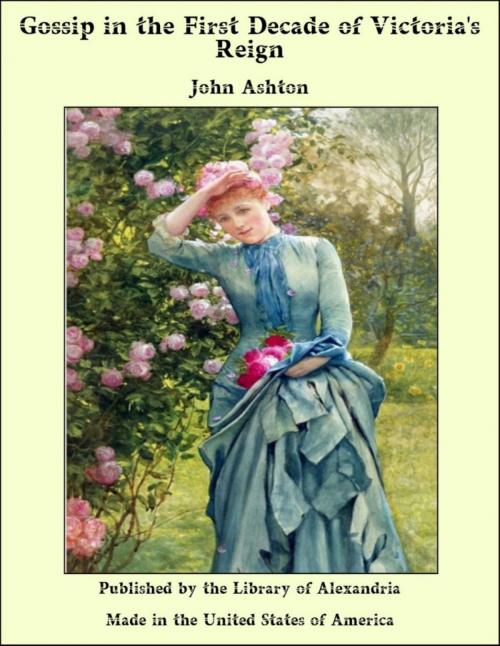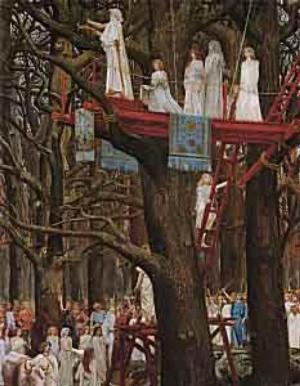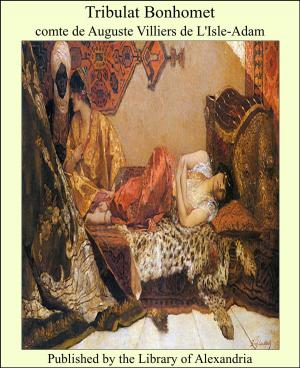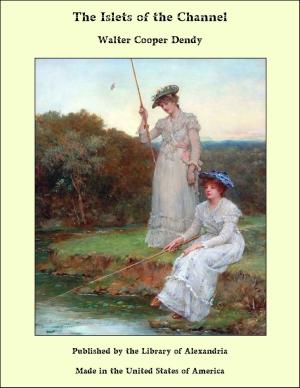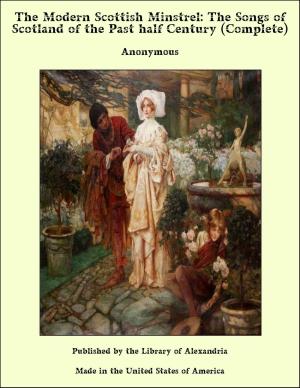Gossip in the First Decade of Victoria's Reign
Nonfiction, Religion & Spirituality, New Age, History, Fiction & Literature| Author: | John Ashton | ISBN: | 9781465599742 |
| Publisher: | Library of Alexandria | Publication: | March 8, 2015 |
| Imprint: | Language: | English |
| Author: | John Ashton |
| ISBN: | 9781465599742 |
| Publisher: | Library of Alexandria |
| Publication: | March 8, 2015 |
| Imprint: | |
| Language: | English |
King William the Fourth was as sincerely fond of his niece, Alexandrina Victoria, as he cordially detested her mother, and he earnestly hoped that she might obtain her majority, which took place on the 24th of May, 1837, before he died, for he had a horror of the Duchess of Kent having even the shadowy power of a Regent. Greville, in his Memoirs, writing on 23rd of May, says: “The King prayed that he might live till the Princess Victoria was of age, and he was very nearly dying just as the event arrived. He is better, but supposed to be in a very precarious state. There has been a fresh squabble between Windsor and Kensington about a proposed allowance to the Princess.” The old King lived but a very short time after the desired event, for he expired at 2.12 on the morning of the 20th of June, 1837, and how the sad news was broken to the young Sovereign may best be told in the words of that mine of anecdote, Miss Frances Williams Wynn, the daughter of Sir Watkin Williams Wynn (the fourth baronet): “On Monday we were listening all day for the tolling of the bells, watching whether the guests were going to the Waterloo dinner at Apsley House. On Tuesday, at 2½ a.m., the scene closed, and in a very short time the Archbishop of Canterbury and Lord Conyngham, the Chamberlain, set out to announce the event to their young Sovereign. They reached Kensington Palace at about five; they knocked, they rang, they thumped for a considerable time before they could rouse the porter at the gates; they were again kept waiting in the courtyard, then turned into one of the lower rooms, where they seemed forgotten by everybody. They rang the bell, desiring that the attendant of the Princess Victoria might be sent to inform H.R.H. that they requested an audience on business of importance. After another delay, and another ringing to enquire the cause, the attendant was summoned, who stated that the Princess was in such a sweet sleep, she could not venture to disturb her. Then they said, ‘We come to the Queen on business of State, and even her sleep must give way to that.’ It did; and, to prove that she did not keep them waiting, in a few minutes she came into the room in a loose white night-gown and shawl, her nightcap thrown off, and her hair falling upon her shoulders, her feet in slippers, tears in her eyes, but perfectly collected and dignified.” Lord Melbourne was summoned to Kensington Palace by the Queen at 9 a.m., and a Privy Council was called for 11 a.m., but the notice was so short that several of the Privy Councillors had no time to put on their official costume, and were obliged to attend in undress. Amongst others who made their appearance at Court in this novel fashion were the Duke of Cumberland (then, by the fact of the King’s death, King of Hanover) and Lord Glenelg.
King William the Fourth was as sincerely fond of his niece, Alexandrina Victoria, as he cordially detested her mother, and he earnestly hoped that she might obtain her majority, which took place on the 24th of May, 1837, before he died, for he had a horror of the Duchess of Kent having even the shadowy power of a Regent. Greville, in his Memoirs, writing on 23rd of May, says: “The King prayed that he might live till the Princess Victoria was of age, and he was very nearly dying just as the event arrived. He is better, but supposed to be in a very precarious state. There has been a fresh squabble between Windsor and Kensington about a proposed allowance to the Princess.” The old King lived but a very short time after the desired event, for he expired at 2.12 on the morning of the 20th of June, 1837, and how the sad news was broken to the young Sovereign may best be told in the words of that mine of anecdote, Miss Frances Williams Wynn, the daughter of Sir Watkin Williams Wynn (the fourth baronet): “On Monday we were listening all day for the tolling of the bells, watching whether the guests were going to the Waterloo dinner at Apsley House. On Tuesday, at 2½ a.m., the scene closed, and in a very short time the Archbishop of Canterbury and Lord Conyngham, the Chamberlain, set out to announce the event to their young Sovereign. They reached Kensington Palace at about five; they knocked, they rang, they thumped for a considerable time before they could rouse the porter at the gates; they were again kept waiting in the courtyard, then turned into one of the lower rooms, where they seemed forgotten by everybody. They rang the bell, desiring that the attendant of the Princess Victoria might be sent to inform H.R.H. that they requested an audience on business of importance. After another delay, and another ringing to enquire the cause, the attendant was summoned, who stated that the Princess was in such a sweet sleep, she could not venture to disturb her. Then they said, ‘We come to the Queen on business of State, and even her sleep must give way to that.’ It did; and, to prove that she did not keep them waiting, in a few minutes she came into the room in a loose white night-gown and shawl, her nightcap thrown off, and her hair falling upon her shoulders, her feet in slippers, tears in her eyes, but perfectly collected and dignified.” Lord Melbourne was summoned to Kensington Palace by the Queen at 9 a.m., and a Privy Council was called for 11 a.m., but the notice was so short that several of the Privy Councillors had no time to put on their official costume, and were obliged to attend in undress. Amongst others who made their appearance at Court in this novel fashion were the Duke of Cumberland (then, by the fact of the King’s death, King of Hanover) and Lord Glenelg.
